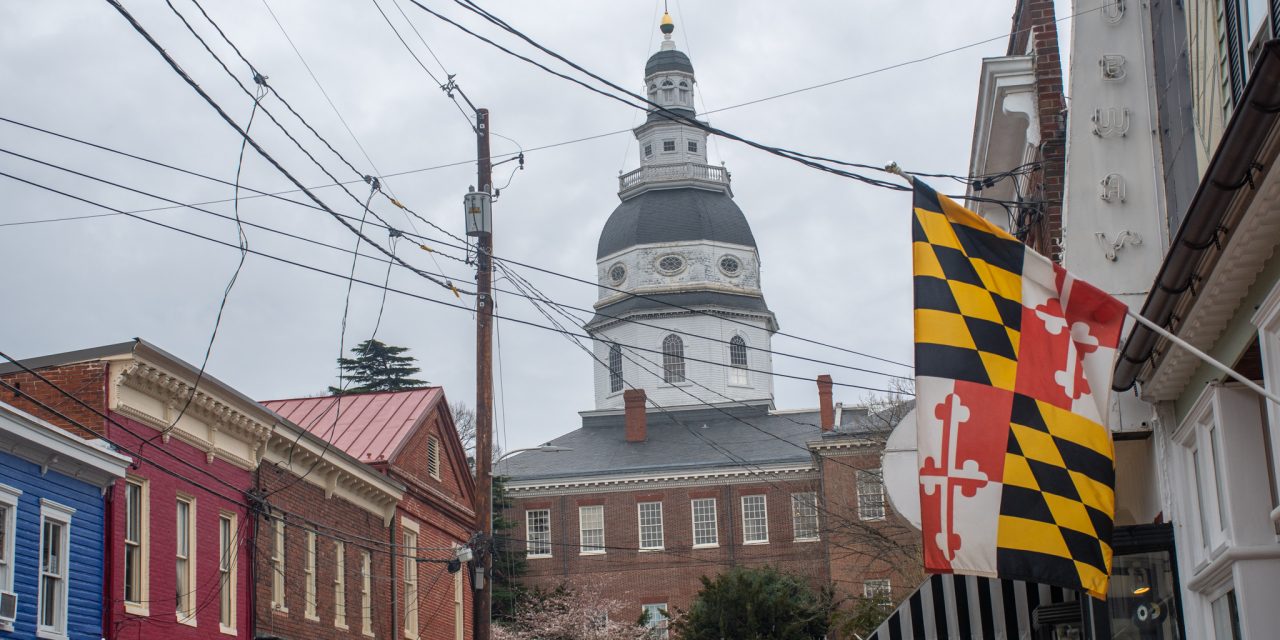Correction: A Feb.14 CNS story on a bill to crack down on ticket scalping said that the bill does not define “speculative” ticketing. The bill defines a “speculative ticket” as one that is “not in the actual or constructive possession of a reseller at the time of sale.”
BY ANGELIQUE GINGRAS
Capital News Service
ANNAPOLIS, Md. – State lawmakers are proposing legislation that cracks down on ticket scalping in Maryland, hoping to stop unfair ticket prices and bad actors in the resale market.
Sen. Dawn Gile, D-Anne Arundel, and fellow Democrats in both chambers are pushing this ticketing reform bill, inspired by the overwhelming demand for artists like Taylor Swift and Beyoncé and by the scalpers who in recent months have preyed on their fans.
“We really believe that, you know, entertainment tickets are not real estate, stocks, other commodities,” said Gile. “They should be for fans to see the show, and so this bill would get to the heart of the scalping issue by eliminating the incentive to scalp in the first place.”
But critics are concerned about some parts of the bill they say won’t protect consumers – and may even encourage monopoly. The proposed changes might limit a consumer’s choice on where to purchase tickets, they say, and threaten healthy competition in the market.
The debate comes amid a rise in online ticket scalping. Swift fans came to know the problem all too well in 2022 when an unprecedented number of buyers tried to score tickets to her “Eras Tour” on Ticketmaster. Also flooded with resellers and ticket scalpers, the site crashed, leaving fans with less than a love story.
That fiasco triggered interest in Congress, still considering legislation aimed at rebuilding trust in the ticket industry. Lawmakers are trying to increase transparency in ticket sales and protect consumers from overpriced tickets with harsher penalties on scalpers. According to Live Nation Entertainment, Ticketmaster’s parent company, Maryland is one of 12 states that have passed laws or are considering legislation to protect resale.
The fiasco also inspired Gile’s bill in the Maryland General Assembly last year, which focused on restricting resale, but Gile withdrew the bill after small concert venues complained that it didn’t do enough to address the scalping issue.
Now, Gile and Del. C.T. Wilson, D-Charles, chair of the Economic Matters Committee, are taking another stab at the problem.
They will focus on three things: requiring the full ticket price to be disclosed at every step of the transaction; banning so-called “speculative ticket” sales, so third-party vendors can’t sell tickets they don’t have in hand yet; and capping the secondary market, so that a ticket can’t be resold for an amount more than its face value.
This new approach has the backing of at least one major venue in the state.
“This bill would make Maryland the premier state for protecting consumers and the ticket-buying experience,” said Tom Coale, a lobbyist for It’s My Amphitheater, which operates on behalf of Merriweather Post Pavilion in Columbia.
He added: “It takes on all of the worst practices, ticket scalpers, it addresses speculative tickets, it addresses the upselling of these tickets, and that shows just the level of deliberation and research that Senator Gile and Chair Wilson put into this bill.”
While there is general support for increasing transparency in ticket sales, critics are concerned with other parts of the bill.
Dana McLean, executive director of the Coalition for Ticket Fairness, said her organization represents small business in the ticket resale industry as well as fans and season ticket holders. She told Capital News Service that “spec ticketing” has a negative connotation in the industry, but that responsible resellers are actually good for the fans.
“The term spec ticketing now is synonymous with people not actually getting the tickets that they paid for because somebody can’t come through and actually deliver that,” said McLean. “When it’s done the right way and done by the people who should be doing it … It’s actually really beneficial to the customer. It gives them more options.”
While Gile’s proposed legislation doesn’t define speculative ticketing either way, it does say that any tickets sold in the secondary market should be capped at their initial price. CTF calls this an anti-consumer practice.
“When you have a closed market, when you restrict resale, it restricts competition and consumer choice from entering into a market and it gives more power to monopoly,” said McLean.
Closer to home, the House Republican Caucus has similar concerns about consumers not being able to freely sell tickets they purchased.
House Minority Leader Jason Buckel, R-Allegany, said if “regular people resell tickets to sporting events or concerts that they’ve purchased fairly and honestly they can’t attend, and now they want to sell their tickets and there’s a hot commodity for it, I don’t want to in any way prohibit them from being able to engage in those transactions.”
Still, Buckel said, if “there’s a very organized, technological effort to basically control the ticket site, and groups come in and purchase almost all of the tickets within minutes, and then create a secondary market where they gouge folks for what the face value of the tickets are … that’s a different set of facts. I’m certainly open to applying limitations.”




Recent Comments